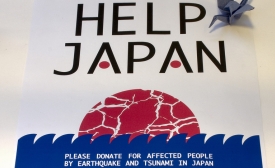japan
While Japan struggles to recover from the shocking devastation of the March 11, 2011 (3/11) earthquake and tsunami, Japanese public diplomacy also struggles to recover from the damage. Tourism campaigns, especially those with a focus of rehabilitating the image of the Japanese are critical, benefiting from support of non-Japanese artists.

While Japan struggled to recover from the 3/11 earthquake and tsunami, Japanese PD also struggled to recover from the damage.
A century before cultural diplomacy became a buzzword for governments around the world, Japan scored a spectacular success -- Washington's cherry blossoms, which have become one of the US capital's top tourist attractions.
“Cultural diplomacy” has a nice ring to it; it brings to mind folk singing, dances around the Maypole, children’s finger-painting exhibitions, and other such feel-good exports that can make even global adversaries think kindly of each other, at least momentarily.
LONDON --- “Cultural diplomacy” has a nice ring to it; it brings to mind folk singing, dances around the Maypole, children’s finger-painting exhibitions, and other such feel-good exports that can make even global adversaries think kindly of each other, at least momentarily.
A new study by the Pew Global Attitudes Project poses the question: Does humanitarian relief improve America’s image. The answer is “not much,” or “not as much as one might hope.” While this may seem unfair, given that the United States spends some $4 billion annually on humanitarian relief, it is perhaps not surprising.
In Japan, by contrast, there is little recognition of the importance of cultural diplomacy. This is clear from recent public discussions on the subject. Why is it that so many Japanese seem unable to grasp the value of using cultural power in foreign policy?
Two decades of economic liberalization ushered in significant changes to India’s business landscape. One important change has been the development of competitive capabilities of Indian companies and the increase in business, professional, and personal exchanges with global businesses, workforces, and ideas. This development has significant implications on India’s soft power projection.







